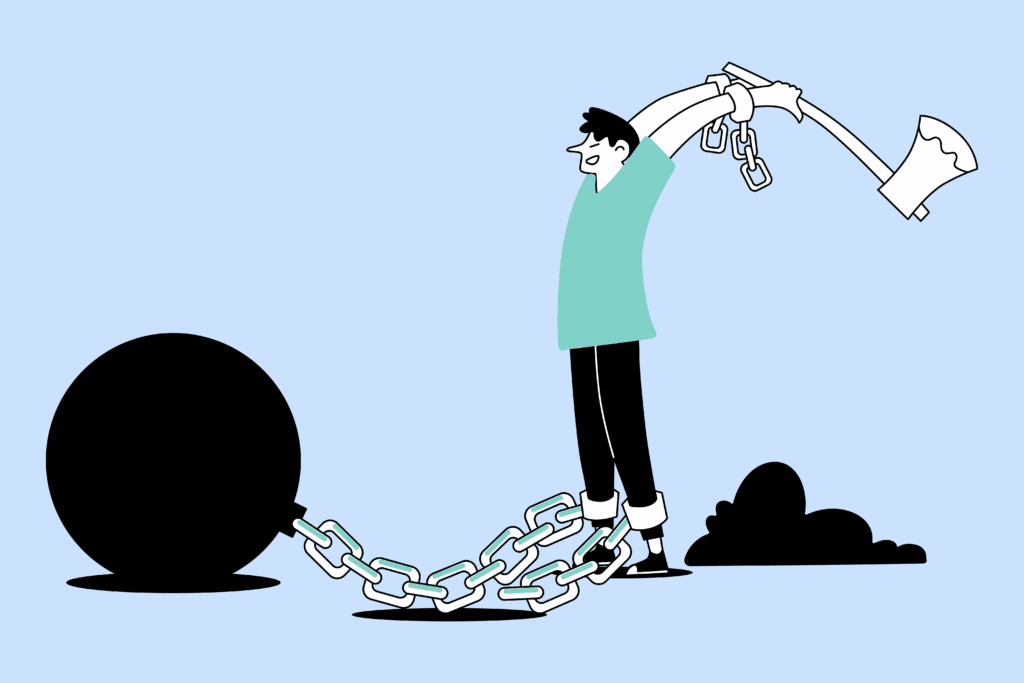The Prisoner’s Dilemma is a classic concept in game theory. It is the branch of mathematics and economics that studies interactions and strategic decision-making among rational individuals.
Set up
In the Prisoner’s Dilemma scenario, two suspects are arrested. The police lack strong evidence to convict them on a major charge. However, they have enough evidence to convict both on a lesser charge. The suspects are held in separate cells and cannot communicate with each other. The prosecutor makes a deal with each suspect separately. If one remains silent (cooperates) while the other confesses (defects), the one who confesses will receive a reduced sentence, and the other will receive a harsher sentence. While if both confess, they both receive a moderately harsh sentence. If both remain silent, they both receive a reduced sentence.
The dillemma
The dilemma arises. Individually, each suspect is better off confessing regardless of the other’s choice. However, it either leads to a reduced sentence or a moderately harsh sentence. If both confess, they both end up with a moderately harsh sentence. Which is worse for each of them compared to both remaining silent.
This situation illustrates a paradox: while both suspects would benefit if they both remained silent, the risk of the other defecting makes it tempting for each to betray the other. The dilemma highlights the tension between individual self-interest and the collective interest, as well as the challenges of cooperation and trust in social interactions. The Prisoner’s Dilemma has applications in various fields, including economics, political science, and evolutionary biology, to analyze strategic decision-making and cooperation in different contexts.
An Internal Dilemma?
Our thoughts and emotions often engage in a complex interplay, presenting us with internal dilemmas similar to the situations depicted in the Prisoner’s Dilemma. Just as prisoners weigh the options of cooperation and betrayal, our minds grapple with conflicting thoughts and emotions. This article delves into the concept of the Mind’s Dilemma, shedding light on the decisions we make within ourselves and how understanding this psychological phenomenon can lead to personal growth and emotional well-being.

The Mind’s Dilemma Unveiled
In the Mind’s Dilemma, our thoughts and emotions represent the two prisoners. Positive and negative thoughts, desires, and emotions vie for dominance, creating an internal conflict akin to the dilemma faced by the prisoners. Cooperation in this context may signify harmony between thoughts and emotions, leading to inner peace and emotional balance. Defection, on the other hand, corresponds to discord, internal strife, and emotional turmoil.
Applications in Emotional Wellness
- Embracing Positive Cooperation: Positive thoughts and emotions often work in harmony, fostering a sense of well-being and contentment. When we consciously choose to cooperate with these uplifting forces, we reinforce positivity, leading to improved mental and emotional health. Techniques such as mindfulness, gratitude practices, and self-affirmation can promote cooperation among our thoughts and emotions, enhancing our overall outlook on life.
- Managing Negative Defection: Conversely, when negative thoughts and emotions dominate, it can lead to stress, anxiety, and unhappiness. Recognizing these destructive patterns as a form of defection can empower us to take corrective action. Counseling, therapy, and self-reflection techniques can help us address these negative emotions, promoting cooperation within our minds and paving the way for emotional healing.
- Striving for Inner Harmony: The Mind’s Dilemma emphasizes the importance of balance and cooperation between our thoughts and emotions. Just as cooperation between prisoners leads to mutually beneficial outcomes, internal cooperation leads to emotional harmony and psychological well-being. Practicing self-compassion, emotional regulation, and fostering a positive mindset can foster this cooperation, enabling us to navigate life’s challenges with resilience and grace.
Conclusion
Understanding the Mind’s Dilemma provides profound insights into our internal struggles, offering a roadmap for managing conflicting thoughts and emotions. By recognizing the parallels between this psychological concept and the Prisoner’s Dilemma, we can make conscious choices to promote cooperation, emotional balance, and inner peace. Embracing cooperation within ourselves ultimately empowers us to lead fulfilling lives, fostering resilience in the face of adversity and nurturing positive relationships with both ourselves and the world around us.
Ready to begin? Start your online therapy journey today. Book your first session now.




